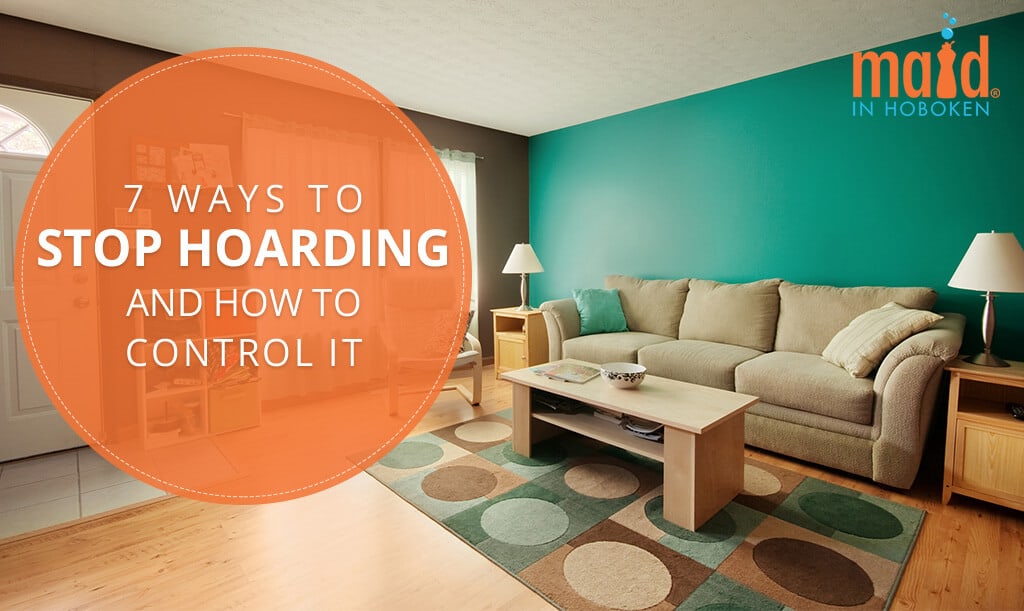Most people mistake hoarding to collecting, but hoarding is a condition often associated with obsessive-compulsive disorder. A person with this condition has trouble getting rid of items, buying too much, and losing or giving away valuables because their personal spaces are severely cluttered.
The hoarding causes fear that items may have a practical use or value in the future, so you hang on to them. It may get so out of control that your home becomes no longer functional, and even potentially a health hazard.
You can learn to stop this condition by making a plan to clear out items, overcoming your fears through exposure, dealing with urges that may provoke relapse, and getting help from others who understand your condition.
Here are seven ways on how to stop hoarding behavior and how to control it:
1. Find motivation.
When you have a hoarding condition, overcoming it needs continuous commitment. So, before you make a plan to start decluttering your spaces, you need to get motivated first.
To stay consistent with your plans, getting motivated is key. Make a list of goals to help you stop hoarding such as "You want to entertain guests in your home” or “You want to see things in your living space easily.” Then, review this list regularly when you start to second-guess your decision to change.
2. Set small, specific goals.
You may get an occasional burst of motivation and want to do it all at once, but this won't lead to lasting change. The trick to genuinely getting over your hoarding is taking baby steps.
For example, if you have a significant, expansive goal like “clean the house” it may be hard to measure when you’re done. In the end, your motivation may fade, and you’ll be back at square one.
Instead, set a small, bright goal like “Clear away three boxes.” With such a goal, it will be easy to track your progress. You can also set a time-based goal, like each day you'll give an hour to clear one box.
3. Develop a clear system for organizing items.
Hoarders struggle with organizing. You have to decide on how you will categorize the different items in your home, typically by type or personal space.
You can even create a few “outcome" piles, such as items to sell, donate, recycle, trash or keep. Next, work on one area at a time until it's clear and avoid moving things from one place to another. To help you even more with clearing your space, you can seek and hire a professional house cleaning service.
4. Track your progress.
Keeping track of your progress can help you gain confidence in dealing with the remainder of your home. Take before and after photos to show your improvement as you clear out each space.
At some point, you might relapse, and setback doesn't have to define you. If this happens, quickly develop a plan to get back on track.
5. Seek accountability.
Friends and family are an excellent source of encouragement as you attempt to control your hoarding problem. They may remind you of the goals, why you wanted to stop hoarding and comfort you while you get rid of sentimental items.
Also, they can ask you a set of questions to help you challenge your feelings about various items. This may sound like “Why are you holding on to this? Does it serve a purpose?” Your answers may help you decide whether to toss or keep an item.
6. Find a specialist.
If you want to stop hoarding on your own, it can be quite challenging so seek a professional that can help you with your state. Typically, hoarding is treated by educating families about your condition and by offering therapy to the individual or the family as a whole.
Treatments for hoarding may include helping you develop better decision-making skills, challenging irrational beliefs with cognitive behavioral therapy, addressing your fears with exposure therapy and boosting your motivation for sticking with your new skills.
7. Get support.
Sharing your experiences with other people may help you feel less lonely in this process. If you're talking to other people with the same condition, they can help you learn different coping strategies to deal with your anxieties and ways to control clutter.
Don't forget to ask your mental health provider to find out if there are specific groups in your area dedicated to hoarding.





